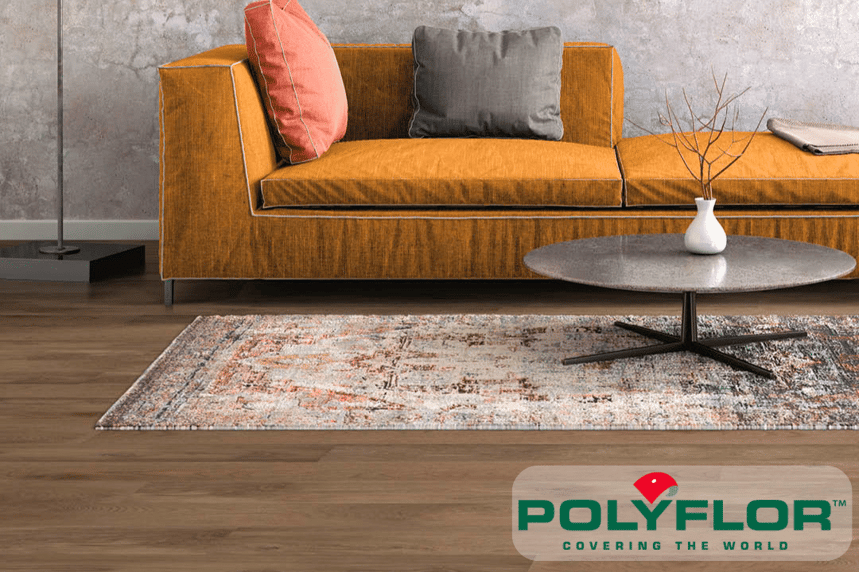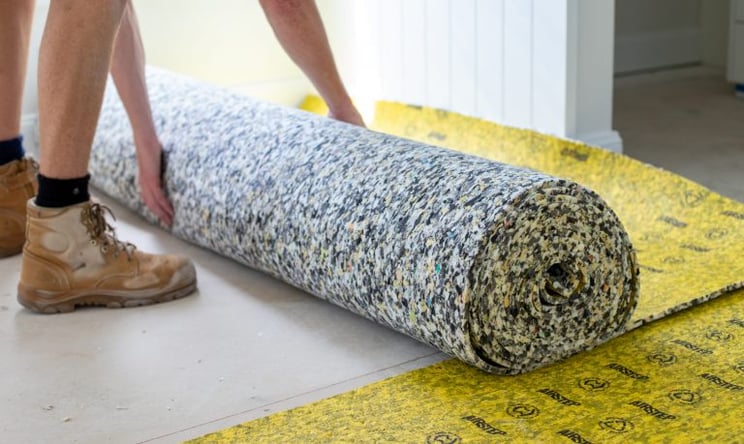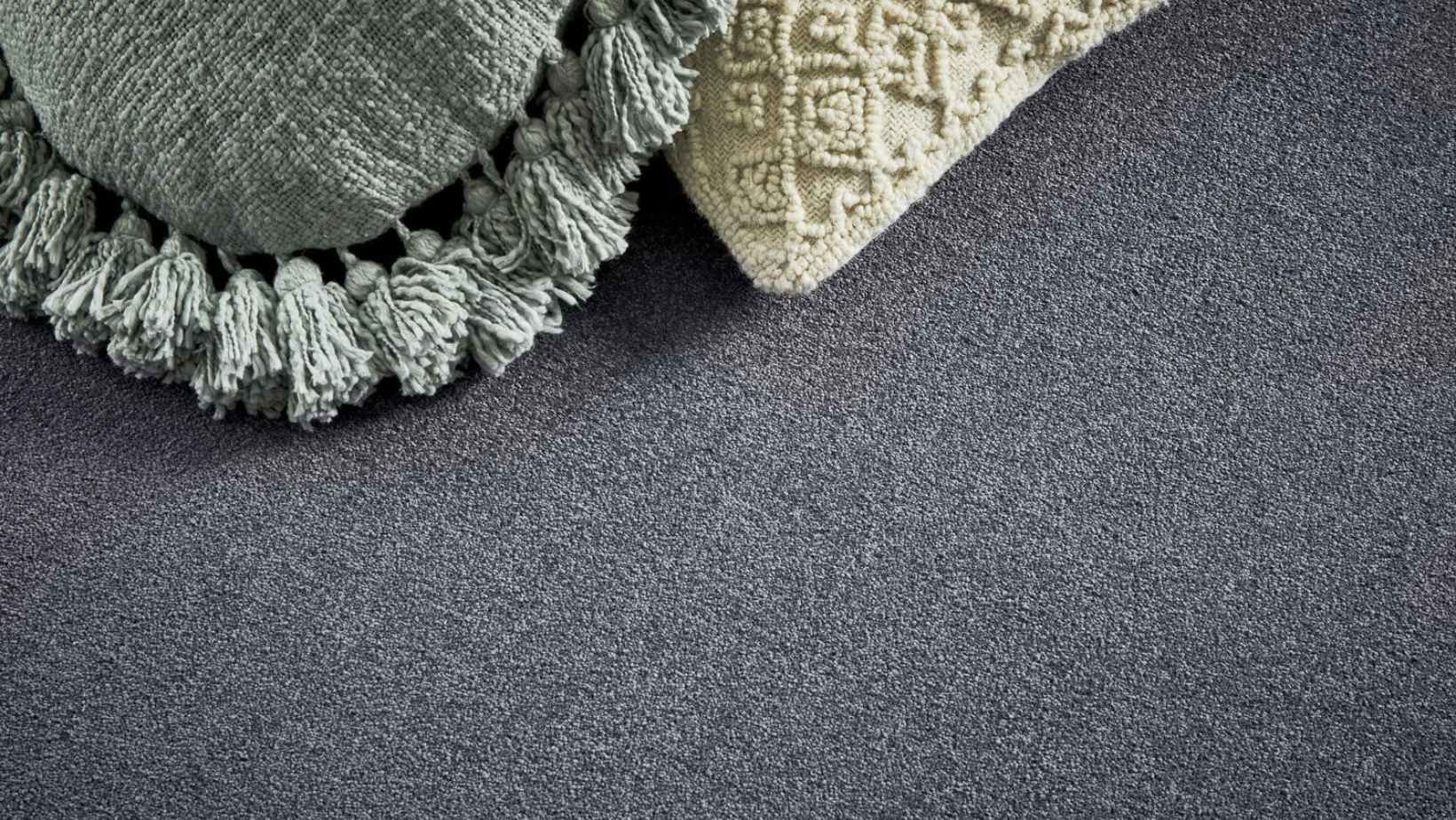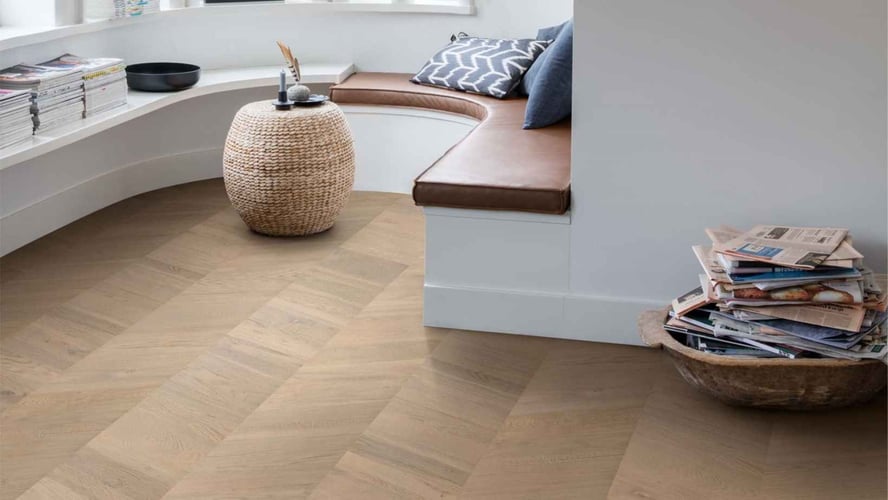7 Tips for Choosing Sustainable Flooring: A Dive into Sustainability
Updated:
Published:
Approximate Reading Time: 4 Minutes
In an era where sustainability takes centre stage, making conscientious choices about the products we bring into our homes becomes increasingly important. At Floorworld, we're here to be your guide on this journey, helping you not only make environmentally friendly decisions but also offering insights into flooring choices that embody innovation, durability, and a commitment to a greener future. Join us as we explore seven considerations for selecting sustainable flooring that aligns with modern trends.
Request our in-depth eBook on Sustainability: The Environmental Impact of Flooring for more!
1. Longevity and Maintenance Over Time
Considering the longevity of your flooring is a crucial factor in making sustainable choices. Opting for materials with an extended lifespan, like Quick-Step's Hybrid Vinyl with a 25-year assurance, not only guarantees enduring quality but also reduces the environmental impact linked to frequent replacements. Additionally, understanding proper floor maintenance is essential to maximize their lifespan. For more insights on this topic, check out our dedicated blog posts on flooring maintenance tips.
2. Sustainable Product Choices
When it comes to choosing sustainable flooring, your options vary depending on the type of flooring you're interested in. While Hybrid, Vinyl, and Laminates have faced criticism due to the chemicals and production processes involved, modern techniques and innovation have transformed them into eco-friendly choices, making them particularly suitable for budget-conscious consumers, given their recyclable nature.
Opting for Engineered Timber or Bamboo represents an organic and sustainable alternative. However, it's crucial to consider the sourcing of these materials, ensuring they come from regenerative forests and understanding whether the timber is reclaimed, recovered, or recycled.
Carpets offer diverse variations, allowing you to choose between organic wool from renewable resources or explore alternative materials such as triexta that, despite historical concerns, have undergone significant innovations and research, positioning them as more environmentally friendly options today.
Underlays present another intriguing consideration. With advancements in manufacturing, they are predominantly crafted from recycled materials and are recyclable themselves. This aspect adds an eco-friendly layer to your overall flooring choice.
3. Underlays
Underlays play a vital role in every flooring decision, offering significant advantages in sound absorption, flooring durability, and overall comfort. However, what may be less known is their recyclability and the numerous sustainable initiatives integrated into their production.
Many underlays are now crafted from 100% recyclable materials, contributing to eco-friendly practices. Notably, the Airstep Underlay range goes a step further, actively participating in waste reduction through a partnership with Ripcurl, where they repurpose waste materials from wetsuit production without compromising on quality.
4. Carpet
Carpets stand out as a highly sought-after flooring option, cherished for both their comfort and aesthetic appeal. Fortunately, for those environmentally conscious individuals, this desire for comfort doesn't have to come at the expense of sustainability.
Wool carpets, a timeless classic, utilize renewable and organic resources from sheep's wool, ensuring both comfort and eco-friendliness. Recognizing that wool might not be everyone's preference, carpet brands like Feltex and Godfrey Hirst are taking proactive measures to adhere to stringent environmental certifications. Whether it's achieving Red List Free status or complying with the Environmental Certification Scheme (ECS) during the production of innovative Triexta carpets, these brands ensure that your choice is aligned with the best environmental practices.
Notably, Redbook Green deserves special mention for its ground-breaking use of the Sorona polymer, delivering a carpet option with reduced energy consumption, lower greenhouse gas emissions, and renewable plant-based ingredients—maintaining the highest standards in carpet quality.
Additionally, Signature Floors introduces an exciting approach by incorporating recycled fishing nets and plastic bottles into their carpet range, showcasing an innovative and sustainable perspective in carpet manufacturing.
Want to keep up to date on the latest interior design trends? Check out our blog: The Ultimate Guide to Interior Design Trends (Updated for 2024)
5. Timber’s Charm
Timber floors, cherished since the days of the earliest settlers, have maintained their timeless appeal, evolving into a sustainable choice for our planet. The latest innovations in engineered timber floors showcase a harmonious blend of recycled and thinned timber, exemplified by brands like Quick Step, and recovered timber, as seen in Premium Floors' offerings. This technological advancement allows today's consumers to make choices that align with environmental considerations, becoming integral participants in a cyclical economy.
Did you know sustainable wood sourcing becomes a crucial factor in the decision-making process. Brands such as Clever Choice offer timber floors made from faster-growing species like Bamboo, contributing to sustainability. Additionally, vigilant consumers can opt for brands certified by sustainable or regenerative forests, ensuring responsible and eco-conscious timber choices.
6. Hybrid, Laminate, and Vinyl
While affordable Hybrid, Laminate, and Vinyl flooring have faced criticism for their past environmental impacts, it's essential to recognize the strides made in the modern era. These artificial flooring types now boast impressive durability and longevity, exemplified by Quick-Step Vinyl's 25-year certification. The key to sustainability lies in prolonging the life of your floor and reducing waste associated with replacements, maintenance, and damage.
Moreover, these flooring types contribute to a fully recyclable circular economy. Initiatives like Recoflor for Vinyl recycling showcase the commitment of suppliers, such as Quick-Step and Polyflor, in achieving remarkable waste elimination—99% for Hybrid and 96% for Vinyl Floors.
The composition of these flooring types has evolved significantly. Polyflor Vinyl, for instance, recycles 96% of waste, incorporating recycled glass and consisting of 40% recycled content and 85% natural materials. Embracing these advancements ensures that your budget-friendly flooring choice aligns with contemporary sustainability standards.
7. Transparent Manufacturing: Sustainable Certifications
Understanding the environmental impact of flooring products requires familiarity with certifications and their implications. Here's a list of key certifications associated with products and suppliers collaborating with Floorworld:
- Ecovadis
- Australian Carpet Classification Scheme (ACCS)
- Environmental Certification Scheme (ECS)
- Programme for the Endorsement of Forest Certification (PEFC)
- Emissions Dans L’air Interieur Certification
- Ecolabel Index emission class
- Environmental Product Declaration (EPD)
- FSC forest management certification
These certifications serve as valuable indicators, helping you make informed and environmentally conscious flooring choices.
Floorworld's Holistic Commitment
At Floorworld, we are committed to creating homes that blend elegance with a profound dedication to the planet. Our commitment to sustainability goes beyond flooring choices. Join us in constructing spaces that epitomize a future that is both stylish and sustainable, one floor at a time. Together, let's elevate homes and nurture the planet for generations to come.
Need more? Check out our Ultimate Eco-Friendly Sustainable Flooring Guide for an in-depth look!
To find out more about the latest flooring trends, sustainability, and maintenance tips, request an e-book below.




.jpg?width=960&height=540&name=Certification%20Label%20Eco%20Banner%20(1).jpg)